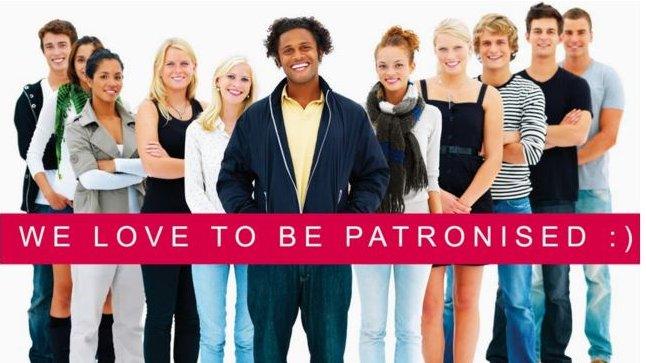Salmond: Scottish independence vote 'within two years' of Brexit
- Published
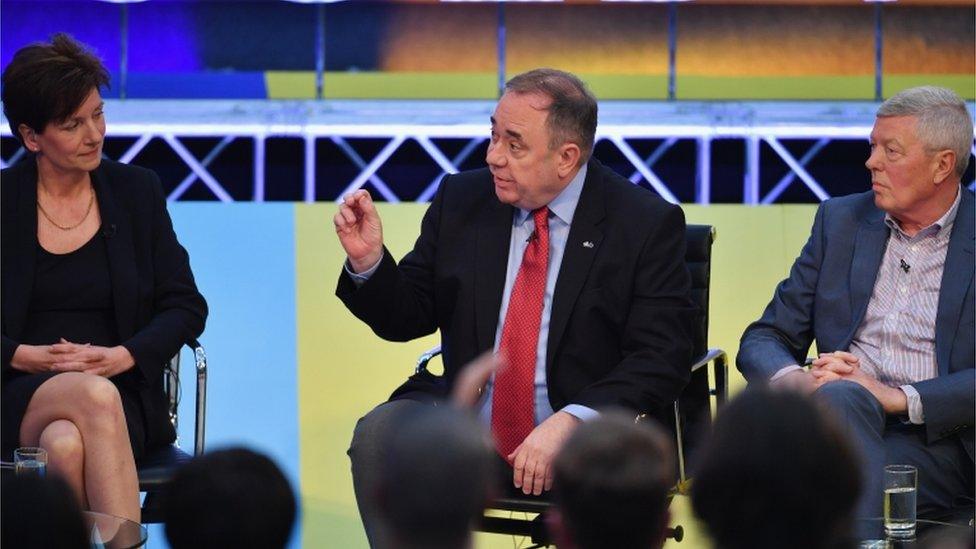
Mr Salmond said a second independence referendum would be held while the UK was negotiating its exit from the EU
Alex Salmond has predicted that Scotland would vote for independence within two years of the UK voting to leave the European Union.
Mr Salmond, the former Scottish first minister and SNP leader, was speaking during a televised BBC EU debate.
He argued that Scotland being "dragged" out of the EU would be sufficient to trigger a second referendum.
But Tory MP Dr Liam Fox, who backs Leave, said membership of the EU was a decision taken by the UK as a whole.
Other panellists in the hour-long How Should I Vote? TV debate - which was filmed before an audience of young voters in Glasgow - were Labour's Alan Johnson, who backs staying in the EU, and UKIP MEP Diane James, who wants the UK to leave.
Mr Salmond, who is backing the Remain campaign ahead of the referendum on 23 June, was asked by an audience member whether Scotland voting one way and the rest of the UK the other would lead to another "unwanted" independence referendum.
He responded by saying that the SNP's successes in both the Westminster and Holyrood elections had given the party a mandate to hold a second independence referendum if Scotland voted in favour of EU membership but the UK as a whole voted to leave.
But he said it would only be possible to hold one if a majority of the Scottish Parliament voted for it - which would need the pro-independence Scottish Greens to vote with the SNP.
'Negotiating withdrawal'
Host Victoria Derbyshire asked Mr Salmond when he thought any second independence referendum might be held.
He replied: "It would have to be within the two-year period of the UK negotiating withdrawal.
"If you had the situation where Scotland in four weeks' time votes Remain and the rest of the UK, or England, drags Scotland out by voting to Leave, then that would justify in my opinion another referendum.
"During the (independence) referendum in 2014, the people of Scotland were told that voting 'No' would secure Scotland's position within the European Union."
He later added: "In the circumstances of Scotland being threatened with being dragged out of the EU against our will, I think the result would be 'Yes' this time."
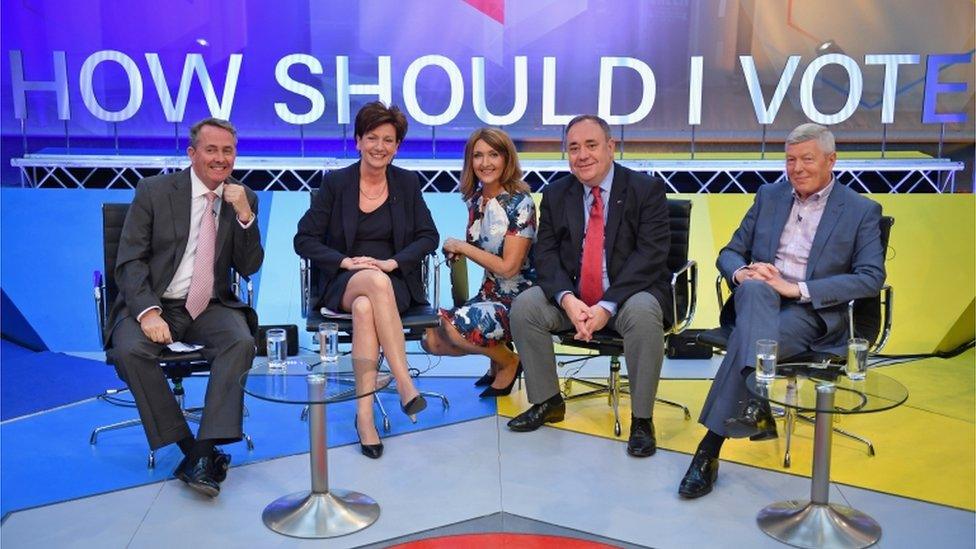
The debate was hosted by Victoria Derbyshire (centre) and featured Dr Liam Fox (left), Diane James and Alan Johnson as well as Mr Salmond
Dr Fox - a Scot who represents an English constituency in the House of Commons - said that Scotland's current first minister, Nicola Sturgeon, had previously described the independence referendum as being "once in a lifetime".
He added: "I have never been very sure what the SNP didn't understand about the result. The Scottish people voted to stay in the United Kingdom.
"That is very important on the EU point, because our membership of the European Union is a decision we take as the United Kingdom.
"And that is why in the referendum every vote counts the same. We don't count them in constituencies, we don't count them in districts, every vote is the same whether it is in Stornoway or St Ives.
"It is a decision for all the people of the United Kingdom, and we should take it on the merits of the European Union debate and not be sidetracked into yet another fear campaign about a Scottish referendum."
Mr Salmond also rejected the so-called Project Fear tactics of the Remain campaign, adding: "It wouldn't be economic Apocalypse if we left the EU but there's more jobs and more choices if we stay in."
But Ms James said she did not accept that some in the Leave side's focus on immigration had been "appalling".
She said there had been a focus on migration "on the basis that that's one very clear example that the UK government .. actually don't have control over a key aspect of our economy".
Opinion polls have suggested that the EU is considerably more popular in Scotland than elsewhere in the UK, external - with the Scottish Parliament voting overwhelmingly in favour of Remain earlier on Thursday.
But it is not clear how much a UK exit from the EU would impact on support for Scottish independence.
- Published26 May 2016
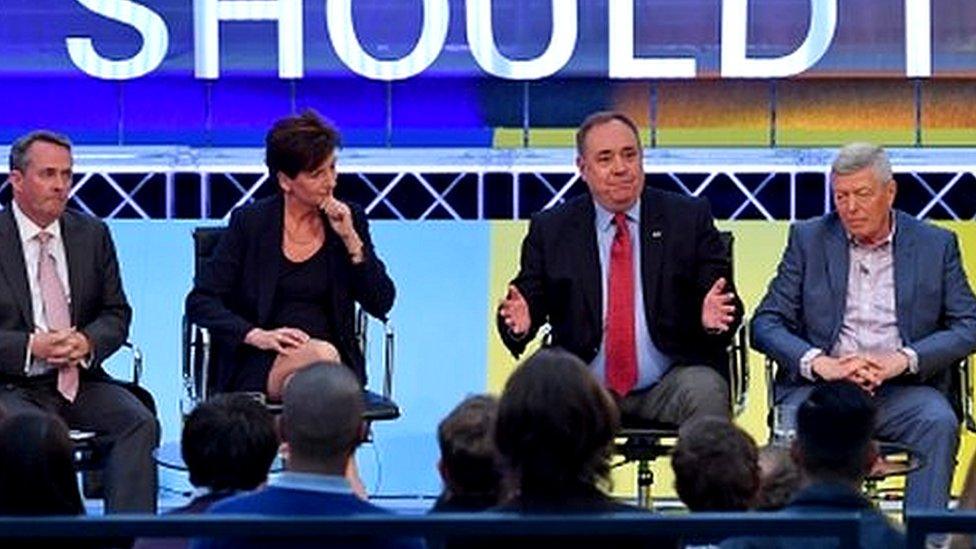
- Published26 May 2016
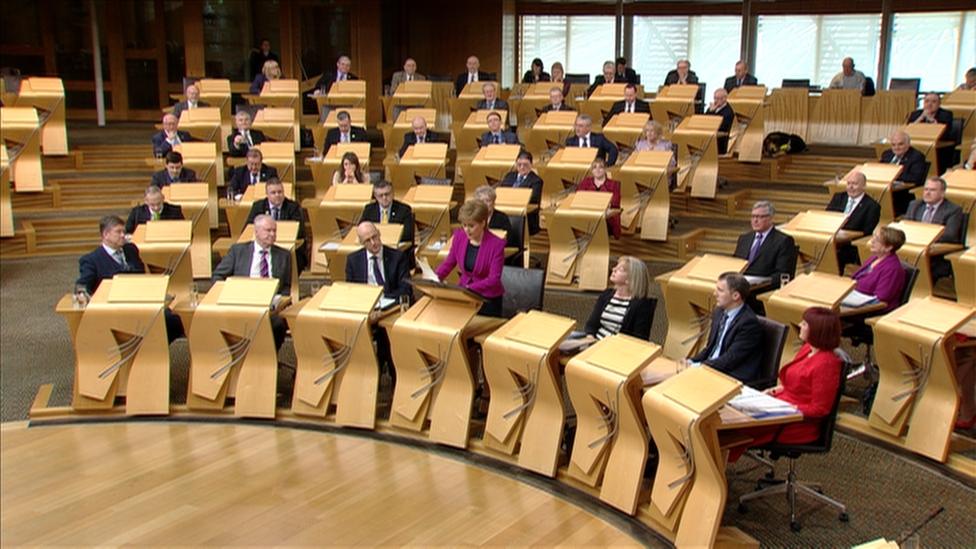
- Published26 May 2016
